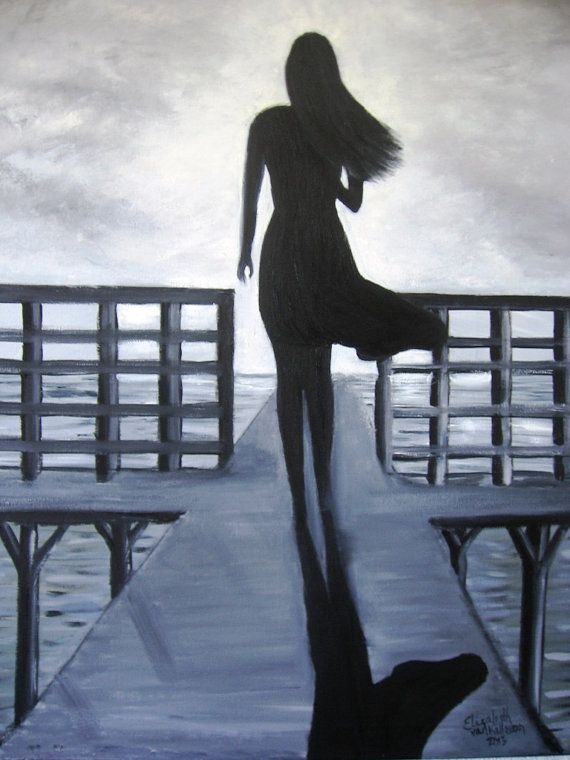She gazed out, out towards the pier. The boats were rocking gently under the effect of the undulating waves which caressed their sides like pairs of firm, guiding hands. The light breeze tickled her bare shoulders, lending a flush to her cheeks which was quickly masked under the shadows of the fast disappearing sun. The saffron and amber coalesced effortlessly into a blurred myriad, refracting down on the water surface and mirrored in her two irises which reflected the scene.
She remembered how a year back they had escaped into the Channel, with ten other Ukranians, but she remembered in flashes. There had been no sun and no waves then, but darkness all around, a thick darkness that shoved down her throat and closed off her nostrils. She remembered how she had feared drowning in that darkness more than the black waters through which their little boat had traversed. She remembered. They had to be very quiet, because the patrol along the Channel was told to be on the lookout and their docking point was right along the southward end, the furthest end.
A mother had wrapped her baby against her bosom very tightly with a wrap which muffled its cries somewhat but echoed in Olena’s ears tumultuously. This, combined with the churning of the waves against the boat, started a turbulence deep in the pit of her stomach. When she closed her eyes, she would let that vengeful darkness win, so she kept them peeled against the raindrops which slapped her face lightly. She couldn’t help looking at this woman, her bangs reaching till her eyelashes and the frame of her shivering perched on the very end of the boat, soaked to the skin. That image would never truly leave her.
Olena didn’t leave much back in Mariopul, and her uncle had told her that the United Kingdom had a family scheme but she wasn’t so sure how much of a family she had, save for her grandmother, who was blind and deaf. She was put in a different boat, and no matter how much Olena had screamed at the man, screamed that her babusia needed her help, he wouldn’t listen. War and invasions had that awful effect on people, they just stopped listening. He wasn’t even the impaired one.
On the boat, it was cold. The weather was something which was the least of her worries, but the wind blew in frigid gusts that fearlessly untied the strands she had braided into the folds of her woollen cap. Now that it was drenched, like everything else, damp strings of it had separated and clung to her hair in a mess of tangled knots. Her fingers seemed to be numb, locked in that interlaced position in which she had put them in her lap an hour ago, to stop them from shivering. The man who was steering all the way up in front seemed to be going painfully slow. Each moment crawled by at a glacial pace, and each wave that rocked them upwards on a sharp incline took an eternity to descend again. Someone kept pointing out to some imaginary light, and another would shoot down the hope as soon as it was presented, because no, there was no light. No one could see the end of the pier, no matter how much they peered determinedly into the abyss. There was nothing. Nothing, save a general feeling of dismay. The kind of dismay that none of them wanted, but not a single one of them could prevent.
She didn’t even realise that she had fallen into a restless sleep until a thick, calloused hand roughly shook her by both her shoulders, a tired voice trickled into her ears. “Don’t, once you shut your eyes, it’ll become too cold. Too cold, you hear me?”
So she jolted awake, nodding frantically, and spent her time counting the number of rocky movements the boat was waking. As the hours slipped past, the rain steadied a little, and the wailing of the infant stopped for a miraculous instant. By the time she had reached a thousand in her counting, they finally caught a hold of a steady source of light. Sometime later, they alighted on the British Channel. Afghanis and Ukrainian masses were sorted into vans for visa processing almost immediately. The mother, the one with her child, had begun sobbing uncontrollably once they could see land. Quiet, panting sobs that had torn up Olena’s heart and she had clutched her fingers tighter, because she had no other belongings, nothing else to hold on to. Her babusia had a trench bag with all their possessions in it. A week later, she got the bag with a note from a doctor explaining how she had died in a government ward from a particularly dangerous bout of pneumonia. It took the British a week to let her know. A week, even though she had explained over and over again that her grandmother needed her.
The sun dipped below the horizon, and her eyes glazed over at the intensity of the memory. The boats were still rocking gently. The colours in the sky had lost their poignancy, and the breeze had picked up its pace, so she turned away from the sight. Her footprints were left engraved on the sandbank, her experiences slipping through her toes like fine grains of sand.


